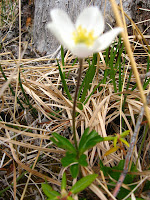Location: Alpine Club, Canmore, Fire-Pit
Date: Oct. 17 - Every 1st and 3rd Thursday 7:30pm
Long before tin and copper were combined, lithics defined most tools. Come and join Ancient Odyssey as we flint-knapp stone arrow heads, spear points, and many other useful tools. Casual, informative, hands on workshop will include multipule cultural and period styles.
To Bring:
• CSA approved safety glasses
• N95 or better particle mask
• Leather gloves or a square of leather to cover hand
To Bring (if possible):
• Flint or Chert
• Broken china
• Broken thick glass
• Hammer stone
• Antler tip (hand held size)












